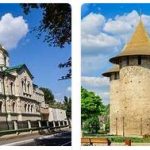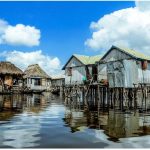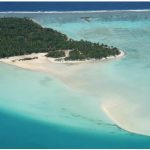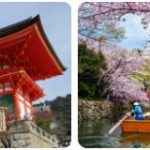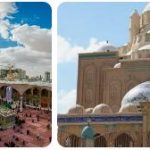Tanzania: Various travel information
How do you get to Tanzania?
Airplane
The international airports of Tanzania are the Julius Nyerere International Airport in Dar Es Salaam, the Kilimanjaro International Airport and the Zanzibar Airport. Regular flights into the country are guaranteed from Europe and by airlines from Malawi, Mozambique and Zimbabwe.
Ship
From Dar Es Salaam there is a ship connection to Mombasa in Kenya. On Lake Tanganyika, ferry boats run from Kigoma to Burundi, Zambia, Rwanda, Uganda and the Republic of the Congo. There are also connections to Kenya and Uganda on Lake Victoria. A ferry runs from Mbamba Bay on Lake Nyasa to Nkhata Bay in Malawi.
Rail
train services operate from Dar Es Salaam to Kapiri Mposhi in Zambia. Rovos Rail offers a very special service for the well-filled travel budget with a trip from Cape Town to Dar Es Salaam. The train, in Victorian style and adorned with the name Pride of Africa, has run in luxury compartments once a year since 1993 for a fare of between 6,000 and 10,000 euros per person. Other special features of the exceptional train are the cocktail, breakfast and observation cars. The drive from Cape Town via Johannesburg, the Kruger National Park, the Victoria Falls in Zimbabwe, via Lusaka in Zambia to Dar Es Salaam takes 14 days. Then the journey goes the 6,000 km long route back to Cape Town.
Car and bus
Good tarred roads connect Tanzania with Zambia and Kenya. The road connections from Tanzania to Rwanda and Mozambique, on the other hand, are poor. Regular bus connections run from Arusha to Nairobi in Kenya as well as from Dar es Salaam to Mombasa in Kenya, Lilongwe and Mzuzu in Malawi and Kampala in Uganda. Buses from Mbeya also go to Mzuzu.
Travel in the country
Air connections
There are domestic air connections between the larger cities and the national parks.
Ferry connections
Boats and a ferry run daily between Dar es Salaam and Zanzibar. There is also a connection from Zanzibar to Pemba. The steamers on Lake Victoria connect Bukoba, Mwanza and Musoma, and steamers also operate on Lake Tanganyika.
Train
Regional trains run from Dar es Salaam to Kigoma and Mwanza, and along the lines Kaliua-Mpanda and Manyoni-Singida and the Zambian border.
Bus
There are bus connections between almost all villages. The minibuses (Dala Dalas) also stop in smaller villages. However, especially during the rainy season, the connections are very irregular.
Roads and rental cars
A good road network connects all major cities. However, some of the side roads are in poor condition and in the rainy season from April to May only four-wheel drive can be used. Night drives are not recommended as wild animals, cattle and goats often take to the streets. Rental cars without a chauffeur are expensive and rare. An international driving license is recommended, the temporary driving license is issued by the police.
Land Cruiser, Hilux Surf and Range Rover are recommended as rental cars, but not mini SUVs such as Toyota RAV4 or Honda CRV, because these have nothing to counter the often poor road conditions in most of the Tanzanian national parks. Four-wheel drive carts are highly advisable.
Traffic rules
In Tanzania there is left-hand traffic.
In contrast to the smaller and easier-to-drive cities of Tanzania, the traffic in Dar Es Salaam is quite demanding. Few traffic lights, traffic jams during rush hour, the aggressive driving style and, above all, the overcrowded and pleasant streets near the Kariakoo Market make life difficult.
Tanzanians drive very fast and rarely hesitate to overtake in corners. Commercial vehicles are often in disrepair and hopelessly overcrowded.
Most roads in Tanzania are in a deplorable condition and are often only held together by potholes. All of the main roads cut through towns and villages and have been given brake bumps to encourage drivers to slow down. Unfortunately, only a few are sufficiently marked that it can happen that you run into them so suddenly that you are driven off the street. So: drive slowly when you come to cities or villages!
Anyone involved in an accident with a pedestrian should drive to the nearest police station. You should never leave the vehicle and try to solve the situation on your own – even if you think you are right. Although Tanzanians are some of the friendliest people in Africa, they tend to take matters into their own hands. Because the mistrust of the police is great and they assume that a person with money (like a foreign traveler) can bribe them and thus evade responsibility.
A convei of government vehicles is given the way. If not, you can be pushed off the street and fined.
International license plate
The international license plate of Tanzania is:
| T |
Tourist office
Tanzania Tourist Board
IPS Building, 3rd Floor
POBox 2485
Dar Es Salaam, Tanzania
Tel: 00255 – (0) 22 – 21 11 244
Fax: 00255 – (0) 22 – 21 16 420
E-Mail: safari@ud.co.tz
http://tanzaniatouristboard.com
Tanzania: entry and exit regulations
Formalities, visas
Tourists from EU countries need a valid passport, a visa and a return flight ticket to enter Tanzania and must have sufficient funds.
Visa department of the Embassy of Tanzania
Eschenallee 11
14050 Berlin
Tel: 0049 – (0) 30 – 30 800
Fax: 0049 – (0) 30 – 30 80 20
Email: info@tanzania-gov.de
Honorary consulate with visa issuing in Hamburg
Tel: 0049 – (0) 40 – 250 79 36
Currency and Exchange Regulations
The national currency of Tanzania is the Tanzanian Shilling (T.Sh.)
1 Tanzanian Shilling = 100 cents
- Import and export of the national currencyThe import and export of the national currency of Tanzania is prohibited.
- Import and export of foreign currenciesThe import of foreign currencies is unlimited. However, there is a declaration requirement. The export of foreign currencies is permitted up to the amount declared on entry.
Goods and customs regulations
The following articles may be imported into Tanzania duty-free:
– 200 cigarettes or 50 cigars or 250 g tobacco and a bottle of alcoholic beverages.
– Alcohol and tobacco products may only be imported by people over the age of 16.
– For video and film equipment, radios, tapes and musical instruments, U. a deposit can be deposited.
Firearms can only be imported with a special permit. Anyone who buys local works of art should keep the receipt and present it to the customs officer when leaving.
Cheap or country-specific goods, souvenirs
Popular souvenirs in Tanzania are drums, brass and copper objects, jewelry and wood carvings.
Tanzania: travel medicine, vaccinations and warnings
Infectious Diseases
In Tanzania, the following infectious diseases are to be expected in Germany and Central and Northern Europe:
- Malaria: There is a risk of infection nationwide and all year round. During the rainy season, from November to May, the risk of infection is increased. Almost 90% of the infections occur with the very dangerous malaria tropica, the rest with malaria tertiana. There is no risk of malaria infection in areas above 2,000 m.
- Amoebic dysentery
- Bacterial agitation
- Schistosomiasis: There is a risk of infection nationwide.
- Lyme disease
- Chikungunya fever– a serious viral infection which is not fatal for a healthy adult human and is transmitted by the mosquito “Aedes albopictus” (tiger mosquito). The name of the disease comes from the East African Swahili (Kiswahili) language and roughly means: “who walks crookedly”.
- Cholera– but there is only a risk of infection for travelers who come into contact with polluted water or contaminated food.
- dengue fever
- Intestinal infectionsfrom contaminated food or water, including amoebas, lamblia, salmonella, shigella, worm infestation and all kinds of viruses and bacteria.
- Filariasis
- Yellow fever
- Hepatitis A and B
- Polio, polio
- Meningococcal meningitis
- Plague– Occurrence in the Tanga region
- Sleeping sickness
- tetanus
- rabies
- typhus
- Tick bite fever
Vaccination recommendations
- Diphtheria– a vaccination against diphtheria should always exist, also in the home country
- Yellow fever – strongly advised! ! Tanzania is one of the yellow fever infection areas declared by the WHO.
- Hepatitis A and B
- Polio, polio– vaccination against polio should always exist, also in the home country.
- Meningococcal meningitis
- Tetanus– a vaccination against tetanus should always exist, also in the home country.
- Rabies– but only for high-risk travelers who can come into contact with the vector animals.
- Typhoid– but only for travelers who can come into contact with polluted water or contaminated food.
Compulsory vaccination
For all persons who come from a yellow fever infection area designated by the WHO, there is a compulsory vaccination against a yellow fever disease. Since the country is one of the yellow fever infection areas designated by the WHO, a yellow fever vaccination is urgently recommended!
Yellow fever vaccination for children
In most of the countries in which a yellow fever vaccination is required, this also applies to children over one year of age, in some countries even from six months. It should be noted that vaccination against yellow fever had a number of side effects, such as encephalitis. Around two-thirds of those affected were children under six months. Therefore, under no circumstances should children under this age be vaccinated. But children under one year of age should also not be vaccinated if possible. If in doubt, yellow fever infection areas must then be avoided. Any vaccination against yellow fever may only be carried out in specially authorized yellow fever vaccination centers!
Malaria prophylaxis
When traveling in the country, it is strongly advised to undergo malaria prophylaxis. However, if the side effects seem questionable to you, you should at least have a “stand-by preparation” with you.
Tanzania: Diplomatic missions
Representations of Tanzania in Germany
The building of the Embassy of the United Republic of Tanzania in Berlin is opposite the Embassy of Cameroon in the Eschenallee in the villa district “Neuwestend” in Berlin-Charlottenburg. The district in which the embassy is based is located between Spandauer Damm, Reichsstrasse and Königin-Elisabeth-Strasse.
Embassy in Berlin
Eschenallee 11
14050 Berlin
Tel.: 0049 – (0) 30 – 30 800
Email: info@tanzania-gov.de
Honorary Consulate in Bönningstedt
Franz-Rabe-Str. 23
25474 Bönningstedt
Tel.: 0049 – (0) 40 – 25 0 79 36
Tel.: 0049 – (0) 40 – 25 45 62 63
German representations in Tanzania
Embassy of the Federal Republic of Germany
Umoja House
PO Box 95 41
Mirambo Street/Garden Ave., 2nd Floor
Dar es Salaam
Tel.: 00255 – (0) 22 – 211 74 09/-15
Email: info@daressalam.diplo.de
www.daressalam.diplo.de
Austrian representations in Tanzania
The Federal Republic of Austria does not have an embassy in Tanzania, but is represented by an honorary consulate. The embassy is responsible for:
Embassy in Kenya
2nd floor, City House, Corner Wabera Street/Standard Street
Nairobi
POBox 30560
00100 Nairobi
Tel.: 00254 – (0) 20 – 319 076/77/78
Email: nairobi-ob@bmeia.gv.at
www.aussenministerium.at/nairobi
The Austrian embassy in Kenya is still responsible for:
- Burundi
- Comoros
- Congo (Democratic Republic)
- Rwanda
- Seychelles
- Somalia
- Tanzania
- Uganda
Honorary Consulate in Dar-es-Salaam
Msasani Peninsula, Slipway Road
Plot 1684/1
POBox 105526
Dar-es-Salaam
Tel.: 00255 – (0) 22 – 260 1492
Email: austrianconsulate@bol.co.tz
Swiss representations in Tanzania
Embassy in Da-es-Salaam
Kinondoni Road, Plot 79
Dar es Salaam, Tanzania
Postal address:
Embassy of Switzerland
PO Box 2454
Dar es-Salaam
Tanzania
Tel.: 00255 – (0) 22 – 266 60 08
Tel.: 00255 – (0) 22 – 266 60 09
Email: dar.vertretung@eda.admin.ch
Web: www.eda.admin.ch/daressalaam


